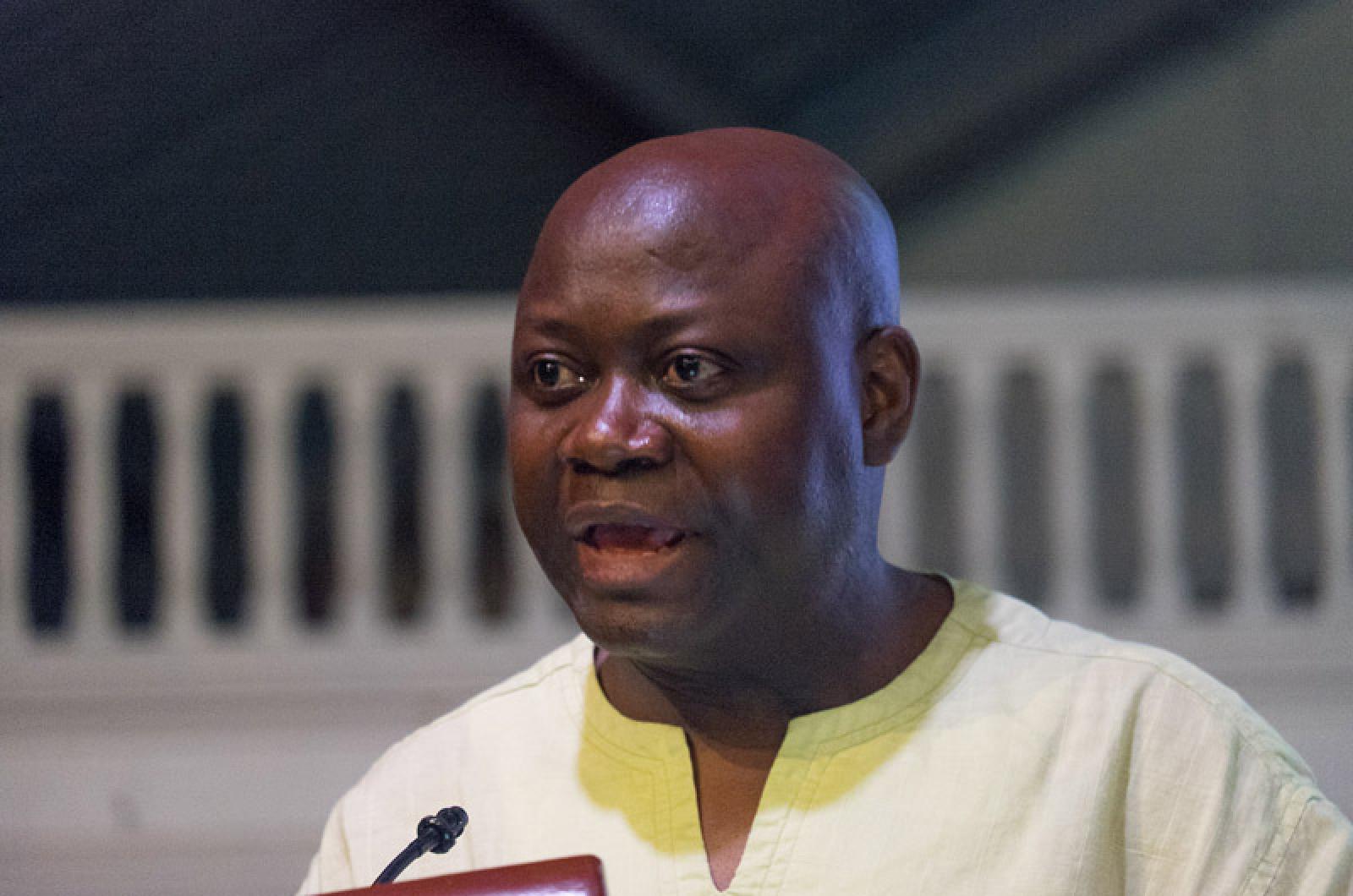Speaking to a small audience under the canopy of the Tabernacle as dusk fell on Friday night, Father Augustine Bangalie explored faith and Ebola in Sierra Leone.
When Ebola began to blight the small west African country in June 2014, Father Bangalie was ministering at the Good Shepherd Parish on the Vineyard where he has been a visiting priest for many years. He became stranded when flights to Sierra Leone were cancelled. In his talk, part of the speaker series by the Martha’s Vineyard Camp Meeting Association, he pointed to the exclusion of religious leaders, especially in the traditional religions, from the efforts against Ebola as a problem that catalyzed the surge of the illness.
In the heat of the Ebola crisis, burial practices, both traditional and religious, were ignored in efforts to dispose of the bodies quickly and safely. Father Bangalie said this encouraged family members of the infected to hide their relatives, sometimes taking them into the woods, so they could at least receive a proper burial. He said 60 per cent of those infected contracted disease from burial processes. For those buried without the knowledge of their families, the Catholic priest said: “That person cannot rest in peace.”
As the crisis escalated, the disease wasn’t the only frightening thing, he explained. “Health officials came in their white suits like from outer space and took their loved ones,” he said.
The outsider approach caused more fear, and ultimately more spread of the deadly disease. For medical practitioners, it was logical to dispose of the bodies as quickly as possible for the highly contagious disease. “It was a matter of life and death,” Father Bangalie said. For the people of Sierra Leone, though, the spirit of their loved ones was of equal concern. “It was a matter of life and death and life,” he repeated.
When outsiders came in, especially in an opposition stronghold like Kailahun that saw 654 reported cases of Ebola, people were skeptical and had no confidence in the strangers. But “when a priest spoke, they listened and believed and trusted,” Father Bangalie said.
He recounted the history of Sierra Leone, from a slavery port to Freetown, the capitol of repatriated former slaves, to 10 years of civil war. He described the precious resources that contribute to Sierra Leon’s volatile history and the three successfully democratic processes that have been held, using the movies Amistad and Blood Diamond to help the western audience connect with his country.
“How is it we got it wrong so quickly?” he asked. There is rich irony, he said, in the wealth of precious resources such as diamonds in Sierra Leone and the inherent poverty they create. He said the paradox is hard to contemplate from a western perspective. “How we are rich, and yet we are poor.”
“The hope is Sierra Leone will come to some peace some day,” Father Bangalie said.
A free-will offering collected at the event will go to Radio Sermon on the Mount, a radio station in Sierra Leone that Father Bangalie described as “a voice of reason in campaigning against the Ebola crisis.”




Comments (1)
Comments
Comment policy »